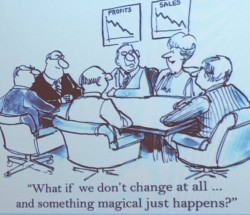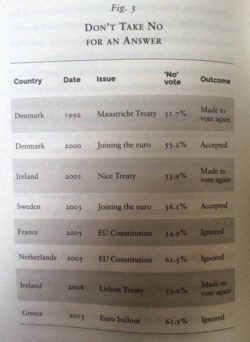Category Archives: Newsroom
One of the theories that’s been going around Twitter since the tide started to turn in the coup in Turkey is that it was a false-flag operation. This has been a particularly popular theory on the right, but I’ve seen it elsewhere.
The crux is that if Erdogan wanted to consolidate power, he needs a pretext. A coup would provide the pretext. So something something, failed coup, more power for Erdogan!
Even if we grant that Erdogan is the villain that his critics believe (it’s not a stretch), it’s difficult to state how terrible a plan this would be. And it suggests a misunderstanding of the relationship between the President and the military. In the US, we have almost complete civilian control. Which is to say that the military is indisputably below the president in the hierarchy of power. The President is the Commander-in-Chief. This is one of those things that you learn in school while you’re going through, but you don’t necessarily see the importance of until cases like this arise.
For the most part, military action in Turkey seems to occur when there is agreement between the military and the President. The military considers itself answerable not to the president, or democracy. but to the founding spirit of Turkey or somesuch. Basically, it’s like how our military takes an oath the Constitution that means obeying the orders of the president, except in their case it doesn’t exactly mean obeying the orders of the president.
There are some rather zero-sum power dynamics involved here, though. Which is to say that the more powerful the military is, the less powerful the military is (and vice-versa). Which means that to pull this off, Erdogan would have to not only send its troops to die, but convince leavers to engage in a stage show that would, in the end, either leave them dead or in a best case less powerful. It’s not at all clear why the military would do this.
Further, if they are going to put themselves out there, they’re likely going to try to win because they don’t like the president. If their backs were against the wall and they had do to something, they might I guess, but at any point in the process they might actually just change their mind and go ahead and try for the coup. Which represents a risk for Erdogan that it seems very stupid to take.All of this is further the long way around to meeting its goal. If Erdogan wants to create a crisis to consolidate power, all he really needs to do is stage an assassination attempt. Which itself is risky, but not as risky. It involved far fewer people. The risk of exposure is much lighter. You’re not putting yourself in a position that if the tide turns a particular way, they can go ahead and seize control of the government.
Or put another way, “Hey you, person who hates me, could you roll your tanks into Ankara as a part of a play-show that will give me the power to defeat you?” is not a good plan. It is a stupid one, and Erdogan isn’t stupid.
 Interpol chief Ronald Noble is surprisingly (to me) uncritical of the ramifications of an armed society.
Interpol chief Ronald Noble is surprisingly (to me) uncritical of the ramifications of an armed society.
The health minister of Queensland (the real one, in Australia) is open to the idea of a lifetime smoking ban for young people.
Contra Eberspacher, I don’t worry about elitism taking over the Democratic Party. I am a bit worried about whatever the complete opposite of provincialism is, however.
Reihan Salam argues that maybe the relationship between anti-immigration sentiment and racism is there but not as simple as we make it out to be.
The ACLU and a lot of Texas conservatives agree, this law sucks.

Thanks to a court ruling, it is now a federal crime to share your Netflix password. This sort of seems like something that will be rather selectively enforced. {see comments}
According to the Manhattan Institute, maybe we aren’t moving less for opportunity so much as moving differently.
Jennifer Lawrence was removed from Hunger Games posters to avoid offending some religious Israelis.
Oil crash or no, Texas unemployment rates remain low.
Cracked’s Robert Evans read every every issue of Daesh’s magazine, and reports seven things he learned.
According to an analysis out of Canada, there is, alas, no substitute for live lectures in college.
That’s… one long eel they found in Austin.
Scandinavia, the home of statist individualism…
 Rome is importing falcons from Texas to hunt starlings.
Rome is importing falcons from Texas to hunt starlings.
Alan Moore encourages new writers to self-publish.
Take some free classes from Yale!
 When Gundam needed a city to smash up, they chose… Edmonton, Alberta.
When Gundam needed a city to smash up, they chose… Edmonton, Alberta.
I… uhhh… yeah, that’s a toilet.
I sometimes wonder if any city can ever keep its conservative character as it grows. If Calgary is any indication, the answer appears to be no.
Japanese politicians do campaign posters differently than American ones do.
Well this is fun. What else can we ban by looking at? Maybe the fetus at different stages of development?
Referring to President Obama as “Barry” is rude, but it’s not an affront to civil rights and Peter Daou’s attempts to make it won is not helpful.
 Matthias Shapiro talks of living on the food stamp diet, and presents how he managed it.
Matthias Shapiro talks of living on the food stamp diet, and presents how he managed it.
Well this kind of sucks. When I don’t mind risking Chinese counterfeits I go to eBay. I go to Amazon specifically when I don’t want to risk it.
It’s really interesting that France is one of two countries where fear of crime is an issue for less than half of the population, given the Paris Attacks. (Which, I know, were not carried out by refugees, but demonstrated holes in the process all the same.)
I appreciate the thought here, but as a knuckle-dragging American I am vaguely disconcerted by the word “instructs.”
Maybe it’s not soda and salty/sweet snacks after all.
If it has indeed begun, I fear it’s the beginning of an unhappy story.
Justin Fox explains how Chinese students saved our colleges. There has been some tension with the international students, but their money is green.
 Helen Andrews argues that the meritocracy is so obvious, that it’s really hard to question. Even if (maybe especially if) it turns into the aristocracy it ostensibly replaced.
Helen Andrews argues that the meritocracy is so obvious, that it’s really hard to question. Even if (maybe especially if) it turns into the aristocracy it ostensibly replaced.
Richard Reeves of the Brookings institute has an interesting piece on partisan affiliation and premarital cohabitation. It gives me hope that there is more resistance to the idea among young Republicans than I thought.
This is presented a quirky Japanese thing when it comes up, but I think rent-a-friend is a neat idea.
No. GOP is not racist. Trump isn't a racist.
Black Lives Matter? RACIST.
Al Sharpton? RACIST.
Democrats? RACIST https://t.co/UcnWgQnFkB— Lee Stranahan (@stranahan) March 8, 2016
If you throw a rock at a group of #BlackLivesProtestors, you'll hit a black racist.
So if you do, throw it hard. https://t.co/87OQt6U0x6
— Lee Stranahan (@stranahan) March 30, 2016
(H/T Almaqah)
 Even before it came out that he probably wasn’t even gay, Walter Olson was not happy with the “self-loathing” explanation for the Orlando killer. He’s also less than jazzed about BLM shutting down a gay pride parade in Canada.
Even before it came out that he probably wasn’t even gay, Walter Olson was not happy with the “self-loathing” explanation for the Orlando killer. He’s also less than jazzed about BLM shutting down a gay pride parade in Canada.
It turns out that smokers are less than interested in being props in someone else’s morality play.
I can definitely understand that there are safety concerns with this device, but as long as nutritionists are recommending diet and exercise I don’t want to hear arguments about efficacy.
A moral dilemma for pro-lifers: The Texas abortion laws recently struck down by the courts increased second-trimester abortions, but reduced abortions overall.
Megan McArdle argues that, at the end of the day, we should treat rape like other crimes.
Hannah Ewens talks about taking grown men’s virginity. I remember one girl I flirted with who seemed to lose interest in me when she found out I wasn’t a virgin. (Note: Unlike this person Ewens did not exactly seek them out.)
As oil prices remain low, some oil companies are wanting to resort to protectionism.
In between the left’s multiculturalism and the right’s nativism, Michael Lind purports to offer a better way.
Razib Khan maps out the great human disruptions.
Matthew Yglesias explains how a seemingly small change in trade policy may have demolished manufacturing employment in the United States.
 Ahhh, but can we put a bomb on it?
Ahhh, but can we put a bomb on it?
A paper alleging fracking contamination of drinking water has been retracted.
Pokemon Go! (Find a dead body.) Pity that Law & Order (Prime) isn’t still around, because they always put so much thought into how the dead bodies are found.
Matthew Parris explains that now that he knows his country a little bit better, he likes it a little bit less. He makes some decent points, but the notion that an objective should be abandoned on the basis of who one’s allies are leaves nobody able to advocate for anything. It is usually the lofty point of view of those whose less savory allies cannot be attacked without accusations of racism.
This sounds interesting, but I’m already pretty backlogged on my audiobook queue.
 Good-bye to Neil Farage, the marmite of British politics and arguably the most successful British politician of an era. That said, I expect Team Norway to win and free movement to remain even if the UK doesn’t remain in the EU.
Good-bye to Neil Farage, the marmite of British politics and arguably the most successful British politician of an era. That said, I expect Team Norway to win and free movement to remain even if the UK doesn’t remain in the EU.
Eastern Europe makes its move…
Moving to Canada is an oft-used threat, but it’s actually kind of hard. Meanwhile, a look at population growth in the Great Maple Leaf.
Sort of like the mysterious man from Thrill Seekers, This guy keeps dying in every terrorist attack, and there’s (non-time-travelling) a reason for it.
JoAnna Novak worries that America is going to destroy sriracha because America.
 This should surprise approximately nobody: With diversity comes segregation.
This should surprise approximately nobody: With diversity comes segregation.
This is probably a good thing, considering that Twitter needed some fresh imagery in its election commentary.
Eastern Europe makes its move…
Will uranium seawater extraction make nuclear power completely renewable?
Woohoo! We’ve got more helium! We’ve got more helium!
Ben Casselman argues that while poor kids need the summer jobs, the rich kids are getting them.
In the medical profession, as in many others, pay-for-performance is a tricky thing.
Mimi Teixeira writes of the business and underbelly of clothing donations.
In effort to avoid contributing to the controversy, a rape victim in Germany lied about the race of the assailants.
I used to have one of these! Actually, three. People like them because they’re reliable, but they kept dying on me after about a year or so.
Homeschoolers are apparently killing it on the SAT.
India just set a new all-time record high temperature — 123.8 degrees (Washington Post | May 19, 2016)
A small city in northwest India climbed to a searing 51 degrees Celsius — or 123.8 degrees Fahrenheit — on Thursday afternoon, and broke the country’s record for all-time hottest temperature. The previous record, 50.6 degrees Celsius, was set in 1886.
The record was broken in Phalodi, which is just 125 miles away from the city that, up until this afternoon, claimed fame as the hottest location in India — Pachpadra.
April and May tend to be the hottest months in northwest India, and this year has been exceptionally so.
Europe to America: Your love of air-conditioning is stupid (Washington Post | July 22, 2015)
The U.S. has been the world’s leader in air-conditioning ever since, and it’s not a leadership Americans should necessarily be proud of. According to Stan Cox, a researcher who has spent years studying indoor climate controlling, the United States consumes more energy for air conditioning than any other country. In many parts of the world, a lack in economic development might be to blame for a widespread absence of air-conditioning at the moment. However, that doesn’t explain why even most Europeans ridicule Americans for their love of cooling and lack of heat tolerance.
Of course, Northern Europe is still colder than most regions within the United States and some countries, such as Italy or Spain, have recently seen an increase in air-conditioning. “The U.S. is somewhat unusual in being a wealthy nation much of whose population lives in very warm, humid regions,” Cox told The Washington Post in an e-mail. However, the differences in average temperatures are unlikely to be the only reason for Europeans’ reluctance to buy cooling systems. It’s also about cultural differences.
Whereas Americans prefer an average temperature of 70 degrees, Europeans would consider such temperatures as too cold, Michael Sivak from the University of Michigan says. “Americans tend to keep their thermostats at the same temperature all year around. In contrast, Europeans tend to set their thermostats higher in summer and lower in winter. Consequently, while indoors, Europeans wear sweaters in winter, while American wear sweaters in summer,” Sivak told The Washington Post.
Furthermore, Europeans are generally more used to warmer room temperatures because most of them grew up without any air-conditioning.
France heat wave death toll set at 14,802 (Associated Press | September 25, 2003)
PARIS (AP) — The death toll in France from August’s blistering heat wave has reached nearly 15,000, according to a government-commissioned report released Thursday, surpassing a prior tally by more than 3,000.
Scientists at INSERM, the National Institute of Health and Medical Research, deduced the toll by determining that France had experienced 14,802 more deaths than expected for the month of August.
The toll exceeds the prior government count of 11,435, a figure that was based only on deaths in the first two weeks of the month.
The new estimate includes deaths from the second half of August, after the record-breaking temperatures of the first half of the month had abated.
The bulk of the victims — many of them elderly — died during the height of the heat wave, which brought suffocating temperatures of up to 104 degrees in a country where air conditioning is rare. Others apparently were greatly weakened during the peak temperatures but did not die until days later.
Photo by ToddMorris 
 Mental illness… or demonic possession?
Mental illness… or demonic possession?
Yes.
Holy freakin’ crap, what a mess. Given the nature of the error, it seems to me that this is something that should be written off.
Minor League baseball players are barely paid in the five digits, and congress may allow them to be paid less. Minor league sports and their athletes, it turns out, are not very valuable (unless associated with a university).
This strikes me as about right. Yes means yes doesn’t just mean changing the threshold for rape, but changing the way young people have sex. It’s not just for college campuses, though. It looks like it’s going to be up to the courts, in the end.
Well this is a lovely story. So is this. Good job, Dixie. Good work.
I don’t mind this, but I’m not going to pretend the fact that it moves the ball in the direction it does isn’t significant. The concept of legislative momentum is right there in the story: We should do this because of that previous thing we did.
Lee Drutman argues that we have too many lawyers in politics. It’s something conservatives complain about, but maybe it ought to be liberals doing the complaining.
 Brookings Institute has discovered the concept of NAM.
Brookings Institute has discovered the concept of NAM.
A neuroscientist writes of all we don’t know about the brain.
If we’re looking for habitable words, we should look for orange planets, because that’s what Earth used to be.
I’ve linkied some bad news regarding the adoption of EMR, but here is some good news.
NPR looks at whether it’s cost-effective to pay teachers $100,000 a year.
Dennis Perkins writes of his experiences working in the video store industry for 25 years, and watching it die.
 Most mass shooters are white men… until you control for population size.
Most mass shooters are white men… until you control for population size.
The Guardian has a pretty fantastic series on the gun problem in the US, and the difficulties that lay ahead of those that want to make headway via gun control.
The notion that the NRA stymies gun control with its deep war chest is still wrong.
Behold, the power of the AR-15.
I am not one to put on my commando gear and yell “BENGHAZIIIIIII!!!!” but the attempt to spread the blame of Benghazi to the preacher and the filmmaker despite knowing that it was a planned terrorist attack is probably the most shameful thing the Obama Administration did during its tenure.
Democrats, meanwhile, don’t know what caused Benghazi, but evidently think it’s something to do with Trump.
Amy Otto says that the problem with men is that they have too-easy access to boobs.
Just in case you were worried about subprime borrowers getting loans, the government is on top of it. What could go wrong?
Patrick clark looks at baseball stadia and their rather short lifespan. I’m genuinely quite stunned to see that a Sun Belt team is spending over $100m to buy Turner Field and then spend a lot more to transform it for their Sun Belt football team.
Some former FDA commissioners are arguing that the FDA should become an independent (cabinet-level) agency. My view on this is entirely outcome-based. What do they want to be doing that red tape won’t allow? What are they being required to do that they wouldn’t otherwise?
 According to one poll, enforcement of the law against unauthorized immigrants seems quite popular across races.
According to one poll, enforcement of the law against unauthorized immigrants seems quite popular across races.
Animations of Kafka, if you’re into that sort of thing.
I still think Nielsen is nothing but a scam (Crackpot Theory #2), but the story behind the Mr Nielsen is interesting.
Yes, yes, let’s please find a way to turn polution into fuel!
How attention and social cues help us determine facial attractiveness.
So you may not have heard, but the Brits held a referendum and voted to exit the European Union. This has garnered some interest in the democratic process.
Referenda have always been controversial to some extent, but for reasons unknown Reuters, Newsweek, and the Washington Post all ran pieces decrying the results of the UK/EU referendum, which coincidentally did not the way that most journalists and news outlets believed that it should have. In Newsweek, Rob Cox describes it thusly:
Imagine, as an analogy, that you are sick. You go to a doctor. But suppose your “doctor” doesn’t study the facts, doesn’t know any medicine and makes her decisions about how to treat you on a whim, on the basis of prejudice or wishful thinking.
Imagine the doctor not only prescribes you a course of treatment, but literally forces you, at gunpoint, to accept the treatment.
We’d find this behavior intolerable. You doctor owes you a duty of care. She owes it to you to deliver an expert opinion on the basis of good information, a strong background knowledge of medicine and only after considering the facts in a rational and scientific way. To force you to follow the decisions of an incompetent and bad faith doctor is unjust.
But this is roughly what happens in democracy. Most voters are ignorant of both basic political facts and the background social scientific theories needed to evaluate the facts. They process what little information they have in highly biased and irrational ways. They decided largely on whim. And, worse, we’re each stuck having to put up with the group’s decision.
Unless you’re one of the lucky few who has the right and means to emigrate, you’re forced to accept your democracy’s poorly chosen decisions.
 Let’s run with the doctor analogy, for a moment. He posits the people in both the position of the doctor and the patient. The more direct analogy, though, is to consider the government professionals as the doctor. Let’s assume, being the knowledgeable and good individuals that they are, that they are good doctors. At the end of the day, though, the decision on medical care is more likely to reside in the patient. The patient with little or no medical training at all, in most cases. The doctor can refuse treatment, but can’t force treatment most of the time. They are there to advise and perform.
Let’s run with the doctor analogy, for a moment. He posits the people in both the position of the doctor and the patient. The more direct analogy, though, is to consider the government professionals as the doctor. Let’s assume, being the knowledgeable and good individuals that they are, that they are good doctors. At the end of the day, though, the decision on medical care is more likely to reside in the patient. The patient with little or no medical training at all, in most cases. The doctor can refuse treatment, but can’t force treatment most of the time. They are there to advise and perform.
The overall theme from the three pieces is constant: Leave it to the experts. Leave it to the doctors. What’s notable the analogy, however, is that it reveals the limitations of the very thing it advocates. For the most part, doctors don’t choose your treatment. Rather, you choose your treatment from the options that (their insurance company, the state, etc) they give you. Most frequently, their job is to inform and advise. In the case of the referendum, that’s exactly what happened. The politicians gave the public the decision, they campaigned for one option or another, and left it to the people.
If one is predisposed to believe that the Brexit is an unambiguously bad idea, it’s quite seductive to accept the argument the “doctor” shouldn’t have given “the patient” the choice, any more than a doctor would give chemotherapy to a patient with the flu. That’s fair. But that’s not an argument against referenda; that’s an argument against the Brexit. More abstractly, though, the argument is about whether or not people should be involved in the big, complex decisions. Or whether we should leave it to the experts.
More often than not, I am in agreement with Cox and the others. Leave it to the professionals. If they make bad decisions, vote them out! That’s how indirect democracy works, and it’s a good system. I generally agree with this. However, there are some questions that are so fundamental that I believe they really ought to be left to the people. One area of fundamentality would include elections, for example. We can’t trust the experts to get everything right because they have a skin in the game, and they can make decisions that make voting them out more difficult. Another area deals exactly with issues like Brexit: collective status.
One thing to keep in mind here is that “collective status” does not merely apply to Leave in the sense that the UK just voted and Scotland did last year. It also applies to joining. The EU is itself a bit complicated because, except for the most recent additions, the union was formed a little bit at a time. The “EU” the the UK originally joined is not the EU that exists today, different both in degree and kind. It’s not always easy to determine which, if any, of the alterations needed a vote (and with what threshold). It should also be pointed out that some political entities of some countries did not vote to join in the first place, which seems relevant.
In 1967, 1993, 1998, and 2012, Puerto Rico held a plebiscite to determine its legal status: State, territory, or independent. This is a very complicated issue, and it can easily be argued that the politicos of Puerto Rico know best what status is best for the territory. But I cannot imagine elevating them to statehood, or granting them independence, without a public vote. It’s too big, and too fundamental a decision to be left to people whose views and interests may diverge greatly from the populace. There is a general consensus around this, because the Puerto Rico establishment and the US establishment both tend to want statehood, but nobody is really acting until they can get at least a majority in a straight vote.
That is not to say, however, that Cox and the others are completely wrong. Far from it, as voters are actually pretty terrible. They are subject to campaigns built on hyperbole and falsehoods. They have collective moods that can turn out to be quite transient. It’s one thing for this to be the case when handling day-to-day affairs, and even who is elected to government. But when we’re talking about such fundamental and foundational decisions, we really don’t want them to be made based on a whim or a transient mood. So the problem is not, as many have said, that the people are given a direct voice. The problem is that a temporary 51% can overrule everybody. The problem with the Brexit vote is not that it was held, or even that they made the wrong decision, but that the decision was (theoretically) made by 52% of the population, and that 52% could be 47% a year from now. Or today. Who knows?
Big decisions are best made when made by a consensus. Sometimes you can’t get a consensus, of course. And what to do then? Well, assuming it’s not time-critical, nothing. Status quo bias is often considered fallacious, but it’s often quite reasonable. The status of a political entity is one of those times, generally speaking. Dynamism has its virtue, but so does stability. It’s hard to invite investment when legal status is always up for grabs. That applies to both the private sector and the public sector. If Puerto Rico has one foot out the door, we’re not likely to institute many 20-year plans, and a lot of good plans can take 20 years. If Britain’s status within the EU is tenuous, then so will be investment in either direction.
What constitutes “a consensus”? Well, the more agreement the better, obviously, but it’s not 50%+1. I wish I could look at the UK, Scotland, Puerto Rico, Catalonia, Quebec, and a spectrum of states and give a number like 60% or 2/3. It’s going to depend. I look at the first three of these situations (I don’t know enough about Catalonia or Quebec) and I believe 60% ought to be sufficient, though in the case of the UK you might also want more than 50% in each of its constituent parts. Even if there was less than 60%, though, there could be wiggle room. If instead of 52% the Brexit vote had gotten 56%, and then five years later another referendum got 58%, it might be worth pulling the trigger so that investment (and everything else) can move forward. The important thing is that you have more than a majority that is not a product of transient sentiment, preferably with support moving in the right direction and the youngs on the right side and the olds on the wrong.
All of this ends up putting the power right back into the legislature and government. Which, contra my seeming disagreement with Cox and others, is as it should be. And is, it’s worth noting, what is happening with the Brexit, Puerto Rico, and so on. Parliament has the power to put a stop to this, and if they choose not to that is the decision that the duly elected representatives of the United Kingdom chose. Congress (including supporters of Puerto Rican statehood) disaregarded the results of the 2012 Puerto Rico plebiscite because the results just didn’t provide sufficient clarity of consensus. The fault in the Brexit campaign, and Scotland before it, was giving so freely the impression that 50%+1 makes it a done deal. That lead to what seems like a commitment that they are either going to have to follow through on or reneg on.
That’s not a position they should have put themselves in. That’s not a position we should ask or expect countries to put themselves in.





